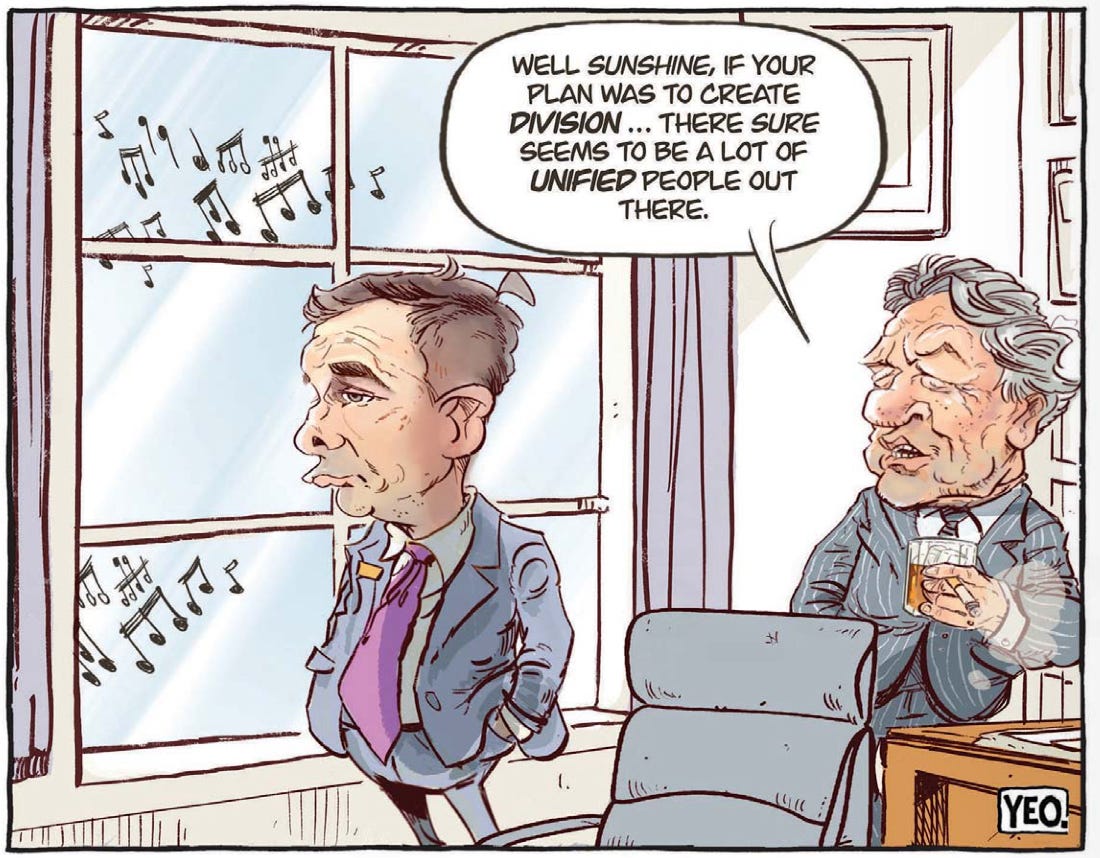
Kia ora. Long stories short, here’s my top things to note in Aotearoa’s political economy around housing, climate and poverty on Wednesday, November 20:
The lead: The official annual Health Survey found sharp rises in food poverty, GP waiting times, mental health issues and obesity in deprived areas since 2022/23.
In my view: Worsening and debilitating food, housing & energy poverty are the nation’s scourges, not public debt or red tape. GDP growth alone won’t fix them.
Scoop: An advisory group picked 36 mines for the Fast-track list in one three-hour meeting, The Post’s Tom Pullar-Strecker reports this morning.
Deep-dive: Aaron Smale has written a compelling North & South feature on the intergenerational effects of solitary confinement.
Solutions: Tom Blessen’s episode of The Detail on Newsroom/RNZ today about migrant exploitation is essential listening.
Editorial Opinion: The usually far-from-liberal ODT-$$$ published a scathing editorial this morning about the PM’s ‘Pointless and Polarising politics.”
(There is more detail, analysis and links to documents below the paywall fold and in the podcast above for paying subscribers. If we get over 100 likes we’ll open it up for public reading, listening and sharing.)
1. The Lead: Poverty worsens in Health Survey
Aotearoa’s fundamental problems are writ large in the official annual Health Survey released yesterday. Here’s the key details from the survey of 9719 adults and 3062 children, via RNZ:
One in four children (27.0 percent) lived in households where food ran out often or sometimes, up from 21.3 percent in 2022/23
10.7 percent of adults had an unmet need for professional help for their emotions, stress, mental health or substance use in 2023/24 - more than double the rate of 4.9 percent in 2016/17
One in 11 adults (9.1 percent) and 8.2 percent of children aged 2-14 years ate the recommended amount of vegetables
Fewer than half of adults (46.6 percent) met physical activity guidelines, ie at least 2.5 hours of moderate-intensity activity in the past week - down from 50.9 percent five years ago
One in three adults (1.5 million) classified as obese, rising to nearly half of those living in the most deprived neighbourhoods
Nearly half of adults (44.9 percent) reported unmet need for dental care due to cost. Rates were worse for Māori, Pacific, disabled, people living in the most deprived neighbourhoods and those aged 25-54 years
One in four adults (25.7 percent) and one in five children (18.5 percent) reported that "time taken to get an appointment was too long" as a barrier to visiting the GP in the 12 months prior to the 2023/24 survey. This is higher than the previous year (21.2 percent for adults and 14.8 percent for children). In 2021/22, the figure was 11.6 percent.
2. In my view: More GDP growth is not nearly enough
Health Minister Shane Reti released the survey yesterday with a reiteration of the Government’s fundamental strategy: grow the economy. Here’s his comments (bolding mine):
“We want people to be able to access primary care, so they’re not having to visit Emergency Departments in the first place, and we can reduce pressure on our hospital system.
“Equally as important, especially when it comes to affording a visit to the doctor or improving food insecurity for kids, is our Government’s commitment to grow the broader economy. We want to make it easier for New Zealanders to cope with cost of living challenges. Our efforts to drive down inflation will also have an impact here.
“Today’s survey findings again reinforce strongly the priorities in our Government Policy Statement on Health: Access, Timeliness, Quality, Workforce, Infrastructure. Access and timeliness are paramount in healthcare.” Health Minister Shane Reti in a statement.
Unfortunately, the cognitive dissonance drowns out his comments. The Government’s actual priority is reducing public debt and reducing the size of Government to less than 30% in both cases. That has meant freezing capital spending, planning to cut $1.5 billion in health spending and launching the most severe fiscal tightening in real-per-capita terms in our history.
The irony is the Government’s true north star of debt reduction is actually worsening the ongoing recession in per-capita GDP as cutbacks in capital spending and staff create a negative feedback loop for the rest of the economy.
The tragedy is that reducing poverty is not going to be result of improved GDP growth, it would actually be the source of new economic growth by increasing productivity, output, confidence, wellbeing and the population, as fewer New Zealanders leave.
Reducing poverty requires public investment in health, housing, education, public transport and infrastructure used by the private sector. That requires the exact opposite of what the Government is trying to do. It requires the Crown to use its balance sheet to borrow to invest.
3. Scoop du jour: ‘Quick. Let’s mine it.’
An advisory group picked 36 mines for the Government’s Fast-track list in one meeting lasting less than three hours, The Post’s Tom Pullar-Strecker reports this morning. A sample:
Minutes of meetings of the Fast-track Projects Advisory Group, released to The Post under the Official Information Act, also show the government-appointed group made preliminary decisions on another 161 fast-track applications at two meetings in July lasting a total of only 10 hours.
That was despite chairperson David Tapsell arriving two hours late to the first of those meetings, due to a plane delay.
Honorable mention
Politics: Powered-up Regulatory Standards Bill removes role of courts Newsroom’s Jonathan Milne
4. Deep-dive du jour: Torturing with isolation
Aaron Smale has written a compelling North & South feature on the inter-generational effects of solitary confinement. A sample:
The Department of Social Welfare stepped in and took Shane from his parents. If the premise of the state’s intervention was to make his life better, it failed.
“I got to Epuni Boys Home, at the age of nine. You strip, you shower. I can remember having kerosene poured on my hair and wearing a grey uniform. And they threw me into a cell. Even though I didn’t have a good mother and a good father, I spent all weekend crying out for them.”
The use of solitary confinement as a common practice goes back at least to the 18th century as a replacement for capital punishment and torture as a public spectacle in Britain and Europe. The practice had a religious logic, in that it was thought solitary seclusion would give prisoners time to reflect on their sins and change their behaviour. But it was quickly found to be its own kind of torture, a psychological one. If the core of being a human being is a relational, sensory creature living in space and time, solitary confinement attacks that core. It often destroys it.
5. Solutions news: What to do about migrant exploitation
Tom Blessen’s episode of The Detail on Newsroom/RNZ today about migrant exploitation is essential listening. A sample:
Sudesh Jhunjhunwala, CEO of Sudima Hotels and Hind Management, is one person helping to pick up the pieces of broken promises.
“To me that’s causing human misery .. it’s like you are taking part in slavery, and anyone who sees that and keeps quiet, I think you are equally complicit,” he says.
He experienced first-hand the dark side of such schemes when, as the manager of two hotels he was offered $10,000 (per letter) to write job letters of work promises.
“I was so upset that this person would even think of calling me up for something like that,” he says.
He has employed three exploited migrants as chefs or other hotel workers, including chef Sujith Gaha, who tells The Detail that migrants should be aware of their rights.
Jhunjhunwala is one of the senior business leaders in the Indian community in New Zealand who wants to see change happen when it comes to migrant worker exploitation. He emphasises the importance of stable immigration policies to curb migrant exploitation.
Migration: The Kiwi business leader giving exploited migrants a second chance Newsroom/RNZ’s The Detail
6. Editorial, Op-Ed or column du jour:
The usually far-from-liberal ODT-$$$ published a scathing editorial this morning about PM Christopher Luxon’s decision to “put his own Prime Ministerial desires ahead of the good of New Zealand and New Zealanders in giving this bill tacit initial support.” A sample:
By allowing the Bill to gain enough support to pass its first reading in the House last week, the absent on the day Mr Luxon helped drive a wedge between Maori and the Crown, and started undoing decades of good work to bring people together. His frequent, patronising but meant-to-be soothing comments that National MPs would not vote for it beyond the first reading have become rather tiresome in light of both the damage it has done, and the wasted expense and energy it has generated, to date.
If Mr Luxon had shown more backbone with Mr Seymour in the coalition talks last year it would have saved a great deal of unnecessary anxiety and stopped goodwill going down the drain. ODT-$$$ editorial
The Kākā’s Journal of Record for Wednesday, November 20
Te Tiriti & politics: The Police thanked the roughly 42,000 attendants of the Hīkoi mō te Tiriti for conducting their movements "smoothly and safely". Over 260,000 people have signed an ActionStation petition urging the Government to scrap the Treaty Principles Bill, the largest the site has yet hosted. RNZ
Economy & food: Foodstuffs North and South Island said they would appeal the Commerce Commission's decision to deny their planned merger, claiming the merger would allow the co-ops to "streamline operations" and "reduce overheads." The Commission is concerned a merger would lead to reduced profit margins for suppliers and thereby reduced supplier investment and innovation.
Health: The 2023/24 New Zealand Health Survey was released, covering a range of health measures such as smoking, drinking, and activity levels.
Security & politics: Legislation to criminalise foreign interference, including the creation of a new offence for people knowingly working against NZ interests to the benefit of a foreign power, passed its first reading in Parliament today. Minister of Justice Paul Goldsmith said the Bill equips NZ against ongoing interference attempts by "some foreign states". 1News
Governance & politics: Regulation Minister David Seymour said the proposed Regulatory Standards Bill, now open for consultation, intends to "bring the same level of discipline" to existing and future regulation that the Public Finance Act brings to public spending.
Health & poverty: The latest New Zealand Health Survey showed Māori daily smoking rates dropped from 28% in 2018 to 14.7% in 2023, in what ASH Action For Smokefree 2025 board member Fay Selby-Law called an "almost unprecedented" drop among global demographic groups. Associate Health Minister Casey Costello announced she would take proposals for a harm reduction-focused regime for nicotine to Cabinet "early next year".
Cartoon du jour: Sunshine out of the sunshine

Timeline-cleansing nature pic of the day: A sunny tree
Ka kite ano
Bernard












Share this post